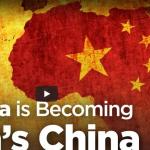As I mentioned in a recent post, I’ll be starting (today) a semester-long position as a Visiting Lecturer at the Centre of Buddhist Studies at Hong Kong University. I will teach courses on two of my favorite topics: Buddhism in Contemporary Society and Buddhist Ethics.
As it turns out, the readings on the two have a relatively large amount of overlap (largely because Peter Harvey’s great Introduction to Buddhist Ethics has great material for both). For the Buddhist ethics class I’ll also be using Damien Keown’s Very Short Introduction to Buddhist Ethics for something more recent and with a little more theoretical material up front, and a few selected essays from the very new Oxford Handbook of Buddhist Ethics.
As my last post kind of touched on the confluence of Buddhist thought and economics (employer-employee labor relations, to be specific), I thought I’d follow up with some resources on Buddhist economics or Buddhist thought about money and wealth-management. This will be fleshed out, hopefully, later in the fall when I dive into this topic.
First, a video advertising/previewing a new book called Buddhist Economics (2017) by Clair Brown, a UC Berkeley Professor of Economics:
Be sure to read this interview with Dr. Brown in Buddhistdoor Global.
Up next, a review of this book and one other by my friend and regular collaborator, Doug Smith. The other book is The Buddha on Wall Street (2015) by Vaddhaka Linn, a member of the UK-based Triratna Buddhist Order:
~
Third, a slightly older video of a talk given by the eminent Buddhist scholar Donald Swearer at the The School for Advanced Research in 2013 called “Buddhist Economics: An Oxymoron?”
He begins the lecture saying that the idea that Buddhism is cut off from the events of the world (and thus politics and economics) might be a “reasonable representation of an ideal type, it has never corresponded to historical reality. Buddhism, like other historical religious traditions, is, after all, embedded in particular contexts and particular times and particular places.”
He goes on to cover the complex development of Thai Buddhism and economics, drawing from ancient stories and recent and contemporary Buddhist leaders.
Lasly, the great Thai scholar and activist, Sulak Sivaraksa, lecturing at Georgetown University in 2012 on Buddhist Economics in the Age of Globalization:
The question addressed in all of these talks is “can Buddhism offer meaningful guidance in economic issues of our day?” The answers are not unanimous. What do you think? What resources, ancient, modern, living and/or textual, do you call upon in your (Buddhist?) approach to economics?












